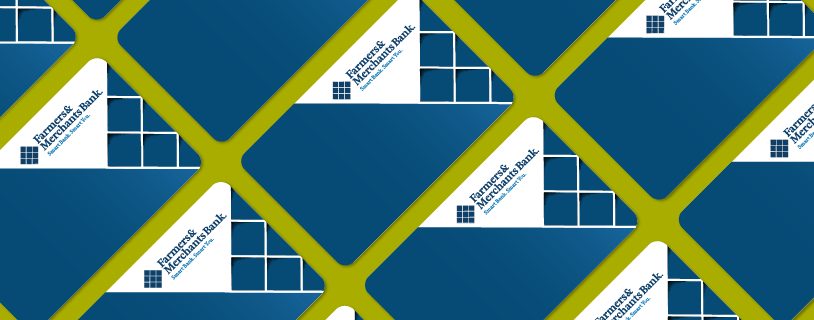The Real Report about Debit Card Security.

—By Gerry A. Dunlap, President and Chief Executive Officer
We’ve all felt it, the gut-wrenching feeling of looking in your wallet and not seeing your debit card in the second slot of the third fold—where it always goes. Or, pulling up your bank statement online and seeing a charge that you know you didn’t make. These situations drive a feeling of panic and worry, but they shouldn’t.
The fact is, your debit card is a completely safe way to make purchases, and if your debit card includes a chip, the safety factor increases even more.
So why have debit cards gotten a bad rep? It really boils down to how we, as consumers, think about a debit card versus a credit card. Debit cards are direct access to our funds, not funds that we are “borrowing” for a timeframe and will pay back at the next billing date. The thought of someone stealing our debit card and getting direct access to our funds is frightening. But the truth is, it shouldn’t be.
All banks today are required to cover fraudulent charges on debit cards, which means you, as the owner of the card and the funds, are not responsible. For this reason, many banks have invested in processes and methods of fraud identification to protect them, and you, against fraudulent charges on a debit card. In fact, many banks will catch any charge that may look suspicious before you will. They monitor accounts and have sophisticated technology that alerts them of any purchase that falls outside of your normal spending habits. Once this alert is made, they notify you to accept or reject the charges and take appropriate action with your debit card depending on your knowledge of the transaction.
In addition, almost all debit cards are backed by a credit card company like Visa or MasterCard. You’ll see their logo in the bottom right corner of your debit card. And, both of these companies have a zero-liability policy. That means if someone makes an unauthorized purchase on your card, you won’t be held responsible for the charge. The catch to this zero-liability policy is it only applies if you use your debit card as a credit card.
We’ve all been asked by a cashier if we want to choose debit or credit. Choosing debit requires you to enter your PIN number and the funds are taken directly out of your account. Choosing credit doesn’t require you to enter a PIN, and the funds are routed from your bank to Visa or MasterCard and then to the vendor, so it doesn’t come directly out of your account. However, routing funds through Visa or MasterCard initiates the zero-liability policy from both of these companies. So, if you’re nervous about entering a PIN, choose the credit option when paying with your debit card.
The nice thing about debit cards is you have the option. A debit card gives you the flexibility to get cash out of the ATM with no charge, and the option to make purchases either directly from your checking account or route them through Visa or MasterCard first, so it is essentially a debit and credit card in one.
Furthermore, if your debit card has a chip located on it, your security increases. Those little chips store all of your information, so none of it is stored online or in a computer system—greatly reducing the odds of anyone being able to hack into your personal information.
The bottom line is there is no reason to be concerned about the safety of debit cards, they are a very secure way to transfer and access funds. It’s always a good idea, however, to check with your bank to understand what tools and processes they have in place to secure your funds and transactions.
At Farmers & Merchants Bank, we offer an auto-on-and-off feature on debit cards, so if that second slot on the third fold of your wallet is empty, you can simply switch your debit card off and no transactions can pass through. Once you find it, click it back on.
Farmers & Merchants Bank – Smart Bank. Smart You.
